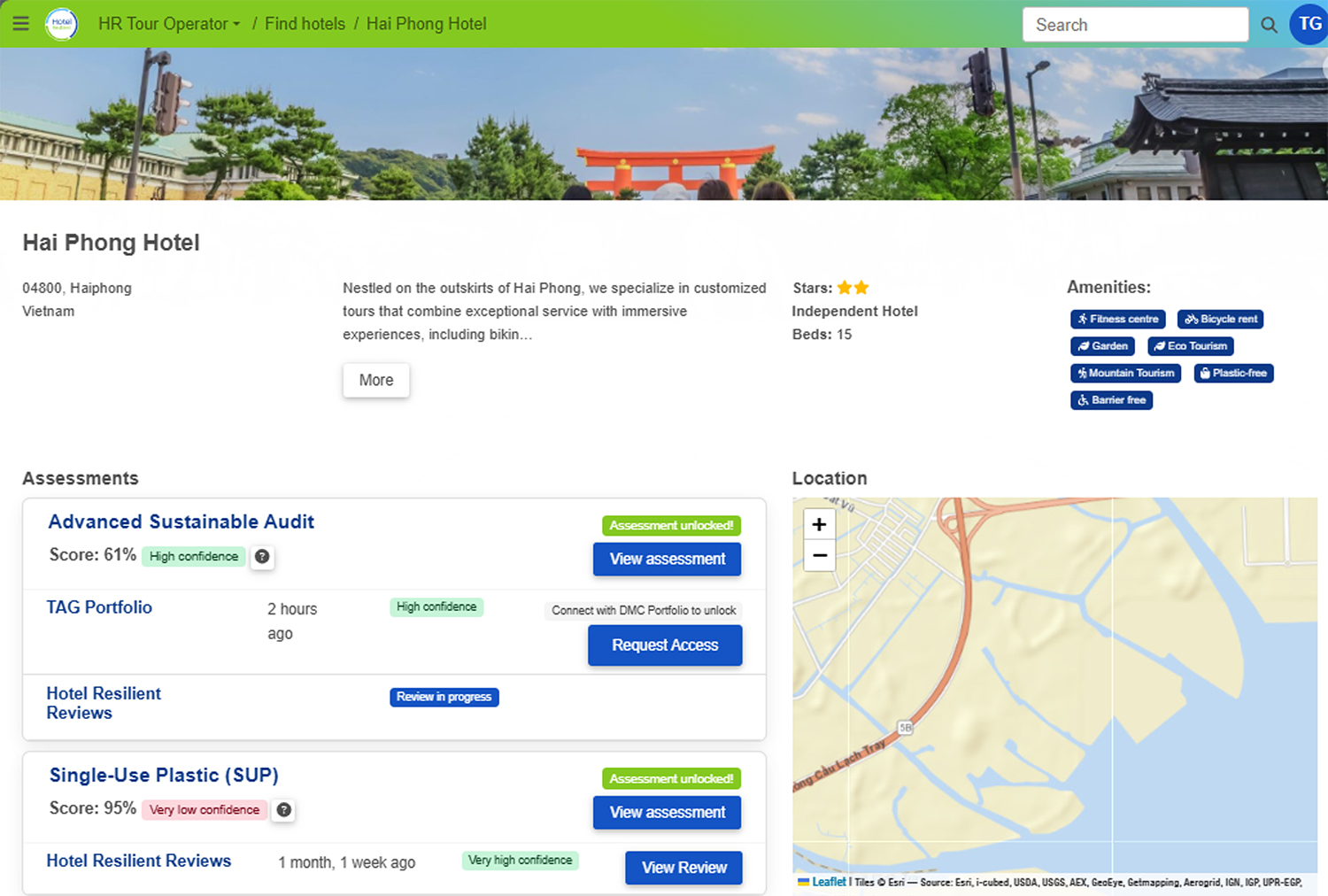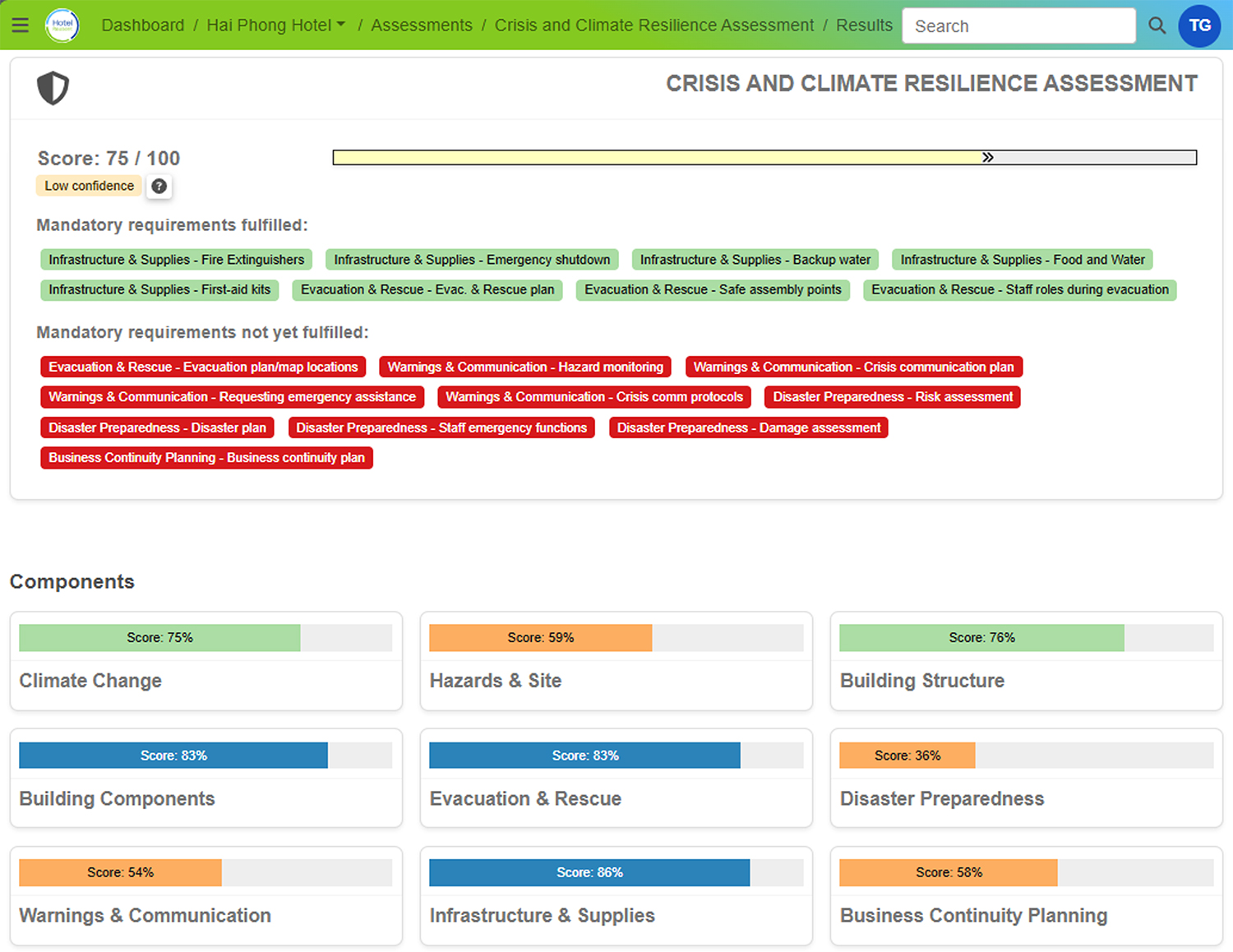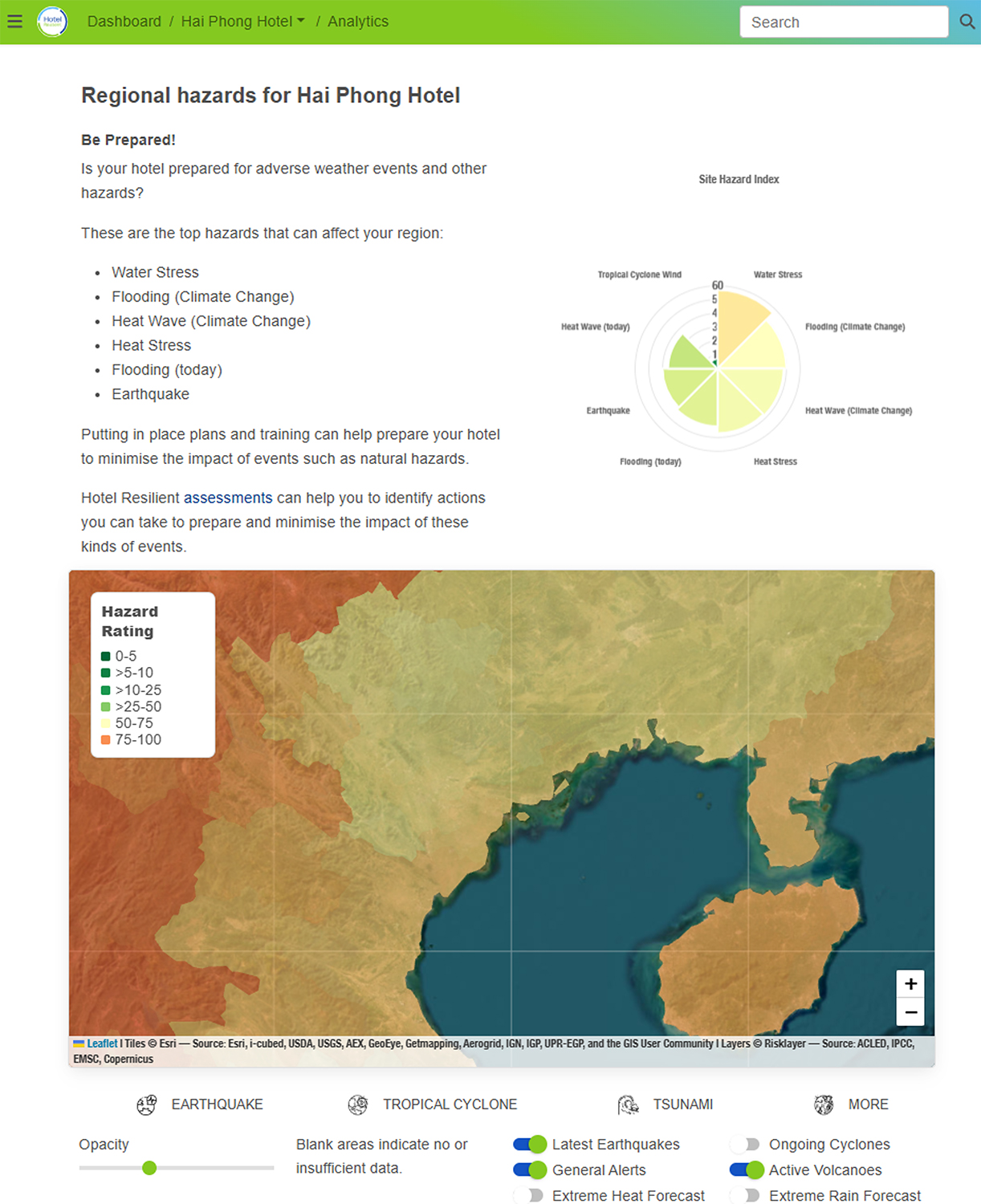Unlocking Sustainability through Smart Collaboration


Synopsis
Sustainability is one of the most discussed trends in the hospitality industry today. However, it is far from being universally mandated. Upcoming regulatory changes, such as the Green Claims Directive, are set to increase the pressure on hotels and their travel partners to substantiate sustainability claims. Additionally, platforms like Booking.com are beginning to require evidence of sustainability practices in the form of certification. While certification can help to verify sustainable claims through an impartial 3rd party audit process, there is much critique given the current landscape of over 200 certification schemes. This proliferation of certification programs reflects both the growing emphasis on sustainability within the hospitality sector as well as the absence of a unified approach.
Rethinking Sustainability Certification
Certification alone cannot be the sole measure of sustainability. Despite its merits, many certification schemes face criticism that warrants consideration. For one, certifications are often expensive and administratively complex, making them less feasible for smaller hotels. These properties may already be operating sustainably due to their integration with local communities and environments but lack the resources to document their efforts formally. Such properties need affordable, transparent alternatives that verify their compliance with international sustainability standards and showcase their efforts.
Additionally, certification programs can lack transparency, with limited visibility into what specific practices have earned a certification seal. By now, every major DMC and tour operator knows what it means to operate sustainably and responsibly. For hotels this includes practices like reducing waste, green energy, water conservation, zero tolerance on child labor, respecting animal welfare, and ensuring decent working conditions. While a certification seal may confirm compliance with a standard that addresses these topics, the information displayed to the public (often just a certificate) typically offers limited visibility into the specific actions being taken by the property to be sustainable. Yet in-depth 3rd party audits are often conducted as part of the certification process: so why not make that data transparent?
To build trust and foster true sustainability, alternative solutions must empower hotels to implement and report their practices clearly, without relying solely on certification. Tools and collaborative initiatives that prioritize transparency, inclusivity, and affordability can bridge these gaps and drive meaningful change.
Leveraging Collaboration for Greater Impact
1. Enhanced Transparency and Trust
Traditional certification schemes often operate as “black boxes,” providing little visibility into the specific practices and metrics that lead to certification. While many schemes align with GSTC criteria, these certifications often fail to communicate critical details.
For instance, they rarely explain how the criteria are localized, what additional standards are included, or how hotels perform across different sustainability dimensions. Instead, everything is distilled into a single certificate, which can leave stakeholders—including DMCs, tour operators, and eco-conscious travelers—demanding greater transparency and specificity.
An open and collaborative approach emphasizes clear and detailed reporting of sustainability practices, going beyond simple compliance to showcase the specific actions taken by hotels. This open sharing of data not only builds trust among stakeholders but also aligns with emerging regulatory demands, such as those in the Green Claims Directive, which push for more rigorous and transparent communication of sustainability claims.
2. Reducing Fragmentation in the Certification Landscape
The proliferation of over 200 sustainable certification schemes in the hospitality sector has resulted in significant fragmentation, creating inefficiencies and confusion. While some platforms have attempted to streamline sustainability data collection into centralized hubs, these solutions often serve a narrow set of stakeholders, such as online travel agencies, and do not address the broader challenges. For example, data collected through such platforms may not be accessible to other key players, like DMCs or tour operators, perpetuating the need for stakeholders to manage multiple standards and systems.
Open and collaborative models provide a more inclusive solution by facilitating sustainability data sharing and validation across a wider network of stakeholders. By consolidating efforts into a shared framework and ensuring data is openly accessible, these models reduce duplication and redundancy while ensuring that all relevant parties have access to the same verified information. This holistic and open approach addresses the root causes of fragmentation, fostering alignment and unity within the industry’s sustainability efforts.
3. Inclusivity for Smaller Hotels
The barriers to certification, including high costs and administrative burdens, often exclude smaller and mid-sized independent hotels from recognition. These properties, despite being inherently more sustainable due to their integration with local communities and efficient use of resources, struggle to showcase their efforts in a formalized way.
Open and collaborative initiatives tackle this challenge by removing financial and operational hurdles for smaller hotels. By leveraging partnerships with DMCs and tour operators, these models provide cost-effective pathways for hotels to validate and communicate their sustainability efforts. This democratization of access ensures that sustainability verification is inclusive, enabling a broader range of accommodations to participate in and benefit from the growing demand for sustainable travel.
4. Fostering Innovation and Continuous Improvement
Collaboration within the hospitality sector opens the door to innovation by bringing together diverse stakeholders to share knowledge, develop tools, and refine sustainability practices. Unlike traditional certification schemes, which often provide static assessments, open and collaborative models create dynamic environments where hotels, DMCs, and tour operators can experiment with new approaches and adapt to emerging challenges.
For example, stakeholders might jointly develop more precise sustainability metrics for a specific region or share strategies for improving energy efficiency and waste management. This continuous exchange of ideas fosters a culture of continuous improvement, ensuring that sustainability practices remain relevant and effective over time.
5. Collective Advocacy Through Open Collaboration
Collaboration among traditionally competitive entities, such as DMCs and tour operators, provides a unique opportunity for collective advocacy. By aligning their efforts, these stakeholders can amplify their influence, advocating for practical and inclusive sustainability policies at various levels. This unified approach contrasts with the fragmented advocacy seen in traditional certification models, where each entity often focuses solely on its own certification or agenda.
Through shared goals and mutual benefits, open and collaborative models enable the hospitality sector to present a stronger, more cohesive voice. This not only strengthens advocacy efforts but also drives systemic change in sustainability standards, benefiting the entire industry.
6. Unlocking Open Data for Understanding Sustainability and Climate Risks
A key critique of traditional certification schemes is their inability to address climate risks facing hotels and localized climate adaptation needs. One of the most significant advantages of open approaches lies in their ability to leverage open data on downscaled climate models and integrate these into relevant metrics and actionable insights for hotels. A wealth of climate and sustainability risk data—often locked away in universities, research institutions, or inaccessible websites—can be made available through open frameworks. However, raw data alone is insufficient for decision-making. Integrating this data with the specific characteristics of a hotel’s site and building enables tailored recommendations and actionable insights.
Case Study: The Hotel Resilient Approach
The Hotel Resilient model exemplifies how open and collaborative approaches can effectively address the key challenges in achieving sustainability in the hospitality sector. By fostering partnerships with Destination Management Companies (DMCs) and tour operators, Hotel Resilient has created a platform that drives meaningful change through collective action.
Collaborations with Khiri Travel, EXO Travel, Asian Trails, Trails of Indochina, and Jacada Travel in Southeast Asia highlight a unique model:
- Transparency and Trust: Hotel Resilient ensures all sustainability claims are backed by detailed documentation and accessible data, addressing the opacity seen in traditional certifications. The collective effort of partnering DMCs helps to verify hotel practices, creating a trusted network of validated sustainability data.
- Reducing Fragmentation: By integrating sustainability efforts across multiple stakeholders, Hotel Resilient simplifies the process for hotels, eliminating the need to engage with multiple certification schemes. Shared data ensures alignment among tour operators, DMCs, and other partners.
- Inclusivity for Smaller Hotels: Through cost-free support, Hotel Resilient makes sustainability verification accessible to small and mid-sized hotels. These hotels benefit from tools and assistance that help them document and showcase their sustainability efforts effectively.
- Fostering Innovation: The collaborative nature of Hotel Resilient encourages hotels and partners to co-create solutions, from enhancing energy efficiency to developing innovative waste reduction techniques, fostering continuous improvement across the network.
- Collective Advocacy: With its global partnerships, Hotel Resilient amplifies the collective voice of its stakeholders, advocating for policies that promote practical, inclusive, and impactful sustainability measures across the hospitality sector.
- Technology and Open Data Integration: Hotel Resilient leverages over 70 indicators of climate risks, natural hazards, water scarcity, food supply risks, and community health risks. This data is integrated with site-specific details of hotels, enabling the creation of tailored risk scores. Hotels receive actionable recommendations to mitigate risks, adapt to challenges, and build resilience through science-based decision-making.



A Call to Action for Industry Collaboration
The Hotel Resilient approach demonstrates the transformative power of collective action. By aligning efforts around transparency, inclusivity, and science-based analytics, the platform empowers the hospitality industry to adopt meaningful sustainability measures. Through its partnerships and open framework, the Hotel Resilient collaboration model with DMC and Tour Operator partners sets a benchmark for how collaboration can pave the way for a sustainable and resilient future.
We call on industry partners to join collaboration efforts with a focus on the following collective actions to drive sustainability in more meaningful and effective ways:
- Empower Hotels: Support hotels of all sizes in their efforts to adopt eco-friendly and socially responsible practices that benefit both the environment and local communities.
- Prepare for Future Challenges: Equip hotels and tourism industry partners with the tools and resources to assess crisis and climate risks and prioritize impactful solutions.
- Enable Sustainable Collaboration: Facilitate the joint collection and exchange of sustainability and resilience data between travel partners, collectively achieving greater results.
- Showcase Efforts: Identify and showcase hotels that excel in sustainable practices, making it easier for travelers to select responsible accommodation.
Conclusion
As regulatory pressures grow and consumer demands evolve, sustainability must move beyond a trend to becoming an integral, measurable part of the hospitality industry. Hotel Resilient’s work demonstrates the transformative power of collaboration between industry partners. By providing an environment that simplifies reporting, fosters transparency, and supports smaller hotels, we are addressing critical gaps in the sustainability narrative. Our partnerships with DMCs and tour operators demonstrates how the industry can work together to elevate sustainability and resilience standards while reducing barriers of entry for all stakeholders.